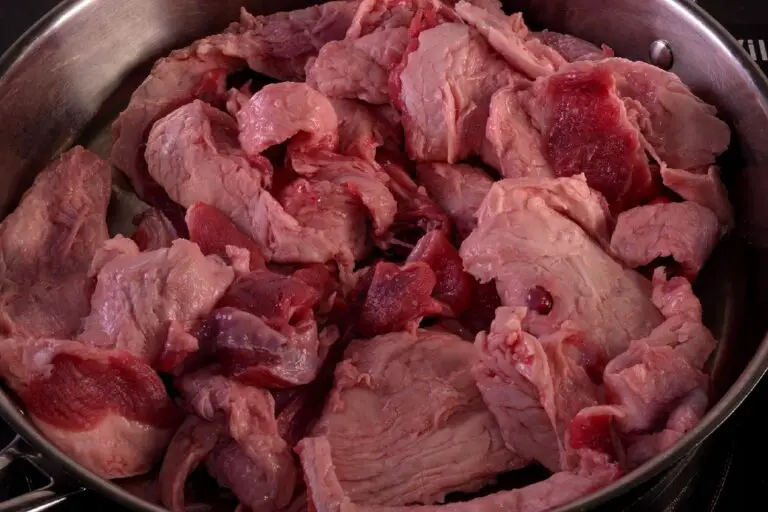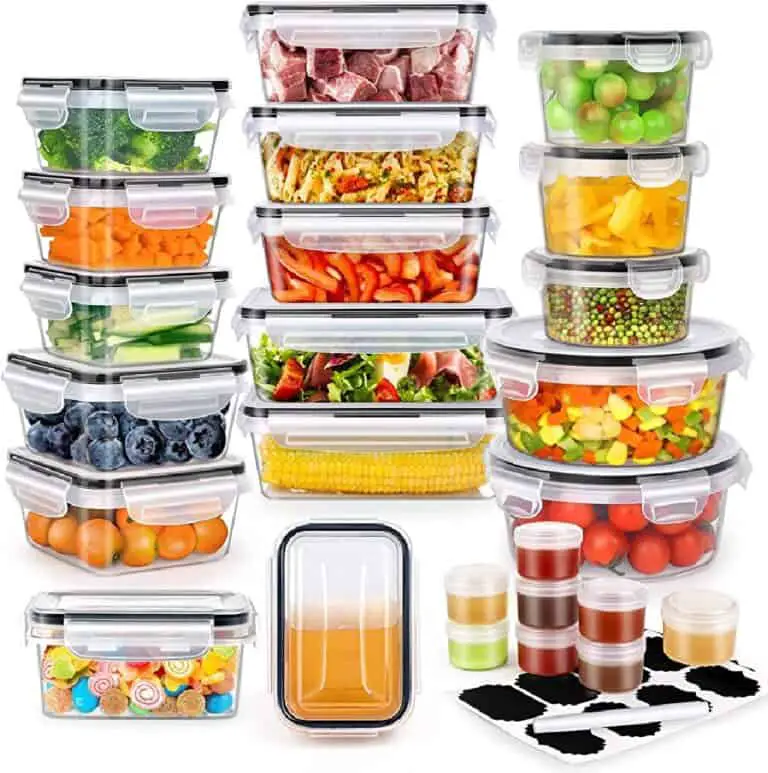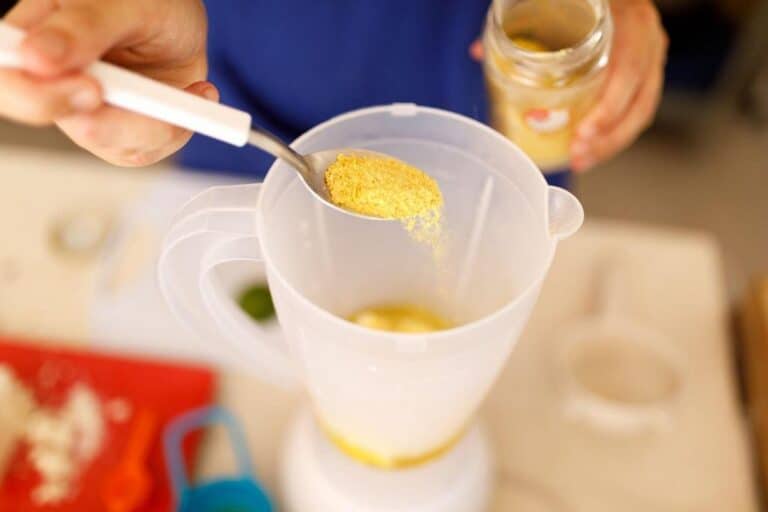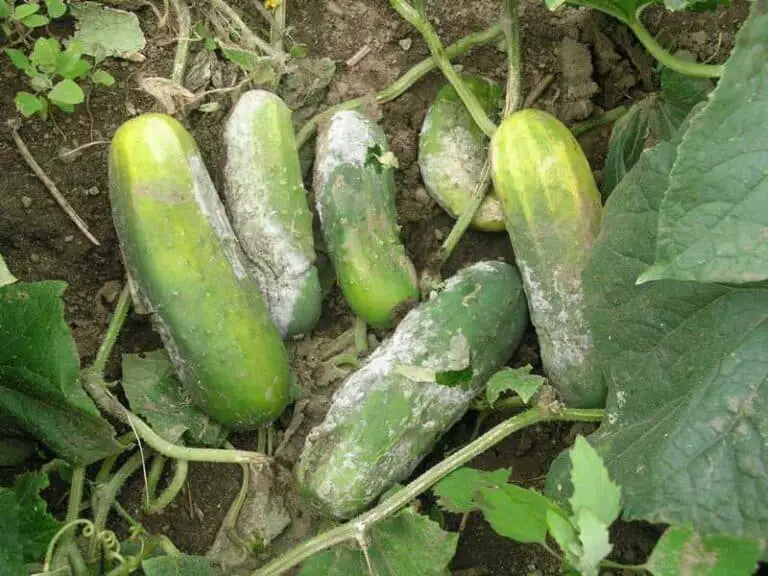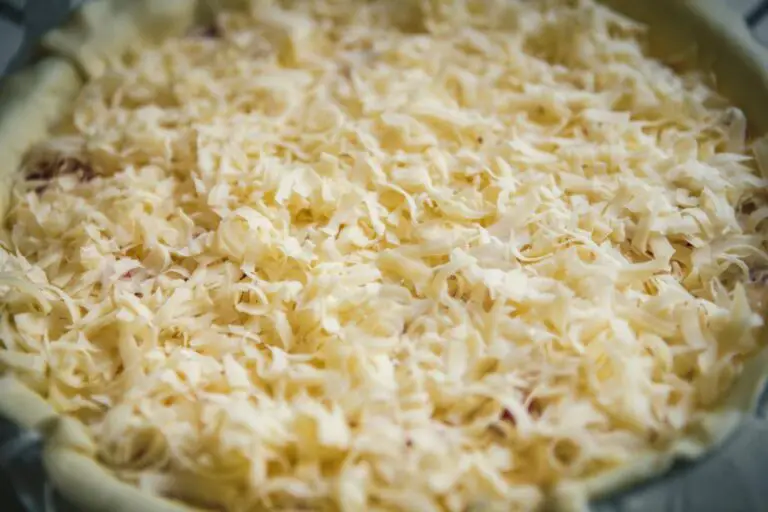Do Green Beans Cause Gas and Bloating? How to Cook to Prevent Bloating

If you’ve ever experienced bloating after eating green beans, you’re not alone. Even though green beans are good for you and full of fiber, they can sometimes make your stomach hurt. But why do green beans have this effect, and what can you do about it?
In this article, we’ll explore the relationship between green beans, gas, and bloating. We’ll take a closer look at the science behind this common digestive issue and provide you with tips for reducing your symptoms.
Whether you love green beans or are just trying to eat more vegetables, it’s important for your digestive health to know that they might make you feel bloated.
So sit back, grab a cup of tea, and let’s dive into the world of green beans and bloating. By the end of this article, you’ll have a better idea of what makes you feel bloated after eating green beans, and you’ll also know how to fix the problem so you can enjoy this healthy vegetable without feeling bad.
Introduction to Green Beans and Digestive Symptoms
Green beans, also known as string beans, snap beans, or haricot verts, are a popular vegetable that is widely consumed all over the world. These legumes are packed with nutrients such as vitamins A, C, and K, as well as folate, fiber, and antioxidants.
Even though green beans are good for your health in many ways, some people may get gas and bloating after eating them.
Gas and bloating are common digestive symptoms that affect many people, and they can be caused by a variety of factors. Gas and bloating are often caused by eating too quickly, eating too much, eating high-fiber or high-fat foods, swallowing too much air, or bacteria fermenting in the gut.
Green beans, as a high-fiber vegetable, may contribute to these symptoms in some individuals. The exact mechanism by which green beans cause gas and bloating is not fully understood, but it may be due to their fiber content.
Fiber is a type of carbohydrate that the body doesn’t break down, so it stays mostly whole as it moves through the digestive system. When fiber reaches the large intestine, it is fermented by bacteria, which produces gas as a byproduct. This gas can cause discomfort, bloating, and flatulence.
Green beans also have oligosaccharides, which are complex sugars that may also make some people have digestive problems.
Green Beans and Their Nutritional Properties
Green beans, also known as snap beans or string beans, are a popular vegetable found in many cuisines around the world. These long, thin pods are full of vitamins and minerals that your body needs, making them a healthy addition to any diet.
One of the main nutritional benefits of green beans is their high fiber content. Fiber is important for maintaining digestive health and reducing the risk of certain diseases like heart disease, diabetes, and colon cancer. Green beans are also a good source of vitamin C, which is essential for a healthy immune system, and vitamin K, which is important for bone health and blood clotting.
In addition to vitamins and minerals, green beans also contain important phytonutrients like carotenoids and flavonoids. Carotenoids are antioxidants that help protect cells from damage caused by harmful molecules called free radicals, while flavonoids have anti-inflammatory properties that can reduce the risk of chronic diseases like cancer and heart disease. These phytonutrients also give green beans their vibrant green color.
Causes of Gas and Bloating in the Digestive System

Gas and bloating can be quite uncomfortable and are often embarrassing. Many things, like diet, lifestyle, medical conditions, and even stress, can cause gas and bloating in the digestive system.
One of the most common causes of gas and bloating is the food we eat. Certain foods, such as beans, lentils, and vegetables like broccoli and cauliflower, can produce gas as they are broken down in the digestive system.
Eating too quickly or not chewing your food thoroughly can also lead to swallowing air, which can cause bloating. Similarly, consuming carbonated drinks or chewing gum can also lead to excess air intake.
In addition to diet and eating habits, gas and bloating can be caused by some health problems. Some of these conditions are lactose intolerance, irritable bowel syndrome (IBS), celiac disease, and inflammatory bowel disease (IBD).
Some of these conditions can make it hard for the body to digest and absorb certain foods, which can cause too much gas and bloating. Stress and anxiety can also affect digestion and cause symptoms such as bloating.
Gas and bloating can also be caused by things like not exercising enough and not getting enough sleep. Exercise helps stimulate digestion and keep things moving through the digestive system. Lack of sleep can also affect digestion and lead to symptoms such as bloating. Also, some medicines, like antibiotics, can throw off the balance of bacteria in the gut, which can cause too much gas and bloating.
Green Beans Causes Gas and Bloating
Green beans are generally thought to be healthy for most people, but some people may get gas and feel bloated after eating raw green beans.
Green beans have a lot of fiber per serving, which ferments in the gut and makes gas, which can cause bloating and flatulence. Green beans also contain lectins that bind to carbohydrates and make digestion more difficult. So, carbohydrates break down less in the small intestine, which makes the large intestine have more fermentation and gas.
However, green beans are different from most other beans (i.e., kidney, black, etc.) in a lot of ways and typically don’t cause much gas. Because of their low levels of lectins, green beans can cause gas for some people.
This is due to the presence of certain indigestible carbohydrates called oligosaccharides that can’t be broken down in the small intestine. As they move through the digestive system without being broken down, they ferment in the large intestine and make gas.
Luckily, there are some things you can do to reduce or avoid gas and bloating caused by green beans. For starters, soaking dried or canned green beans overnight is an effective way to reduce their oligosaccharide content before cooking them down with seasonings or adding them whole to salads and other dishes.
Also, don’t eat too many green beans at once, since too much fiber at once can cause too much gas and bloating. Lastly, fermenting green beans as part of a sauerkraut recipe helps break down some of their parts that are hard to digest and adds good probiotics that help digestion in general.
Green beans contain a unique carbohydrate called raffinose. This type of sugar is difficult for the body to break down, and when it enters the digestive system without being fully digested, it can cause gas and bloating in some people. Green beans contain both raffinose and oligosaccharides, which are both complex sugars that can cause gas and bloating in some people.
Another potential cause of gas from eating green beans is that they are high in fiber. High-fiber foods are known to increase gas production as they travel through the intestines.
A lot of fiber can pull water into the intestines, which can cause constipation or stomach pain. To break down fiber properly, your body needs to make enough digestive enzymes, which some people may not have enough of because of their age or health.
How to Cook Greeen Beans to Prevent Bloating
One way to limit bloating from green beans is to cook them with anti-flatulence spices. Spices like caraway, cumin, fennel, and ginger have been used as natural remedies for bloating and other digestive problems.
Adding these spices while cooking green beans can help reduce the amount of gas that is released during digestion. Also, soaking green beans before cooking them may reduce the amount of oligosaccharides in the beans, which can cause gas and bloating.
Another method for reducing gas and bloating when eating green beans is to lightly steam or cook them instead of boiling them. Boiling vegetables releases more sugars into the water, which can increase flatulence when eaten.
When you steam or lightly fry vegetables, you can keep some of the nutrients without letting out too many sugars that could make you feel bloated later.
Lastly, adding fresh lemon juice or vinegar to your cooked vegetables may also help reduce flatulence when eating greens like green beans because it helps break down some of the fiber that can be difficult for our bodies to digest.
Conclusion
In conclusion, green beans are a highly nutritious vegetable that provide a wealth of health benefits, but can sometimes cause unwanted gas and bloating. But there are many ways to lessen these effects by cooking the foods the right way and eating them with other foods that help digestion.
By following the tips in this post, like soaking the beans before cooking them and seasoning canned green beans with herbs and spices that are good for your digestive system, you can get the health benefits of green beans without the discomfort of gas and bloating.
So, don’t let the fear of gassiness hold you back from enjoying this healthy and delicious vegetable! Give these cooking tips a try and savor the goodness of green beans!

